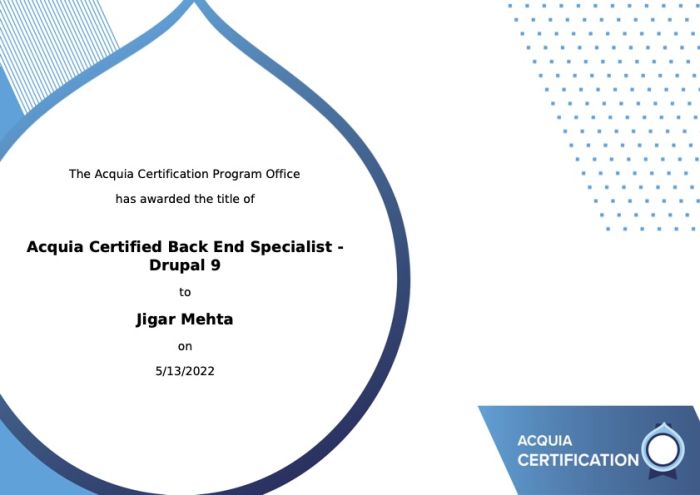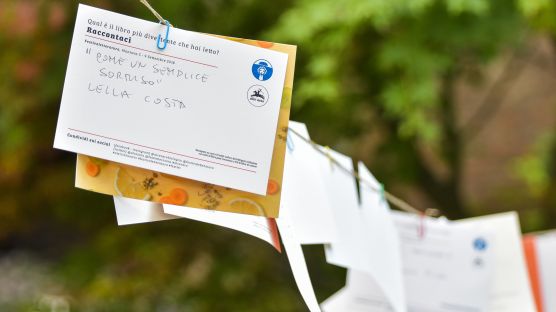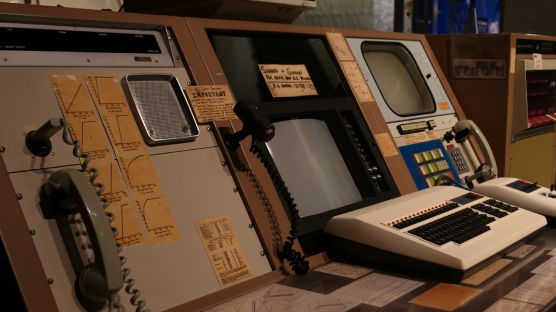When I became a Triple Certified Drupal 8 Expert in mid-2019, I had no plans of taking a similar test again for Drupal 9. However, since I had been away from Drupal for a year or so, I thought that taking the Drupal certification tests would help me refresh my Drupal knowledge. Also, it’d be helpful to team Symetris (my employers) to have a Triple Certified Drupal 9 Expert in the team. Thus, began my journey!
I hereby thank Symetris for sponsoring my tests and for all the support they provided. Just so you know, we’re hiring 😉.

Two minute version
- Becoming an Acquia Certified Drupal 9 Expert can affect your career positively.
- The certification tests are substantially expensive.
- You need to prepare thoroughly as the syllabus covers a lot of topics.
- Certain questions cannot be answered from experience.
- Reading Drupal API docs is very helpful.
- You need an Acquia Academy account to take the test.
- The test can only be taken online and the test UI is easy to use.
- You get the results immediately after submitting the last answer.
- Your name eventually appears on the Acquia certification directory.
My experience
Having talked about the Drupal Expert certification with Symetris (my employers), I was surprised to learn about their generous test policies! Here’s how they helped:
- Paid all the test registration fees.
- Paid for 10 hours of preparation time for each test.
- Paid for the time it took to take the tests, i.e. 90 minutes each.
- Paid me $1,000 as a reward for becoming Triple Certified 💸.
Having decided to take the test, I did some research on the Drupal 9 certification test structure. The structure was similar to the Drupal 8 tests, so I had a good idea of what I was getting into. However, there was a difference in the test registration process and I found it a little difficult to book the test this time.
I had to create an account on Acquia Academy, and then another account on ProctorU. Later I figured out that Acquia Academy contains the tests and that ProctorU was just providing the service of monitoring test-takers.

Most of my test prep came from my 8 years of Drupal experience, however, I hadn’t written enough code on Drupal 9, so I felt less confident. To address this, I decided to read Drupal’s documentation very thoroughly. Since Drupal 9 is relatively new and it is very similar to Drupal 8, I’d often land on documentation pages with Drupal 8 written everywhere. I found this very confusing at times.
Though the test went well, in general, I think there were many quality issues (errors) in the questions, for example:
- Missing words, letters, and other typos.
- Correct answers (options) had errors in them.
- Question text with formatting issues.
- Some purely JS/CSS questions in the backend specialist test.
- Code samples that seem very Drupal 8-ish.
However, all’s well that ends well 🤷🏽♂️. Luckily, I got the following scores:
- Acquia Certified Drupal 9 Developer: 94.0%.
- Acquia Certified Drupal 9 Back End Specialist: 91.7%.
- Acquia Certified Drupal 9 Front End Specialist: 91.7%.
After submitting the last answer, you see your score along with its breakdown. I thought I would receive the score by email like it happened with the Drupal 8 tests, however, I didn’t get such an email. So I decided to save the result page after the 2nd and the 3rd test.
The certification appeared on my profile after 48 hours and my name started appearing in the Acquia Drupal Experts registry.
Looking back, I think it was a fun experience to have taken these tests. At least now I know that I’ve not forgotten Drupal completely during my year-long absence from the Drupal scene. I’d suggest sleeping well on the night before the exam.

Test procedure
This time, I saw that it was only possible to take the test online, which I think is an improvement. Personally, I wouldn’t leave the comfort of my home and commute to an unknown place for a 90 minute test. On the downside, as expected, one has to install a browser extension using which the proctor will monitor you during the test using your laptop’s camera and microphone.
You’ll also need to launch a mini-app through which your proctor will communicate with you. Before the test, you’ll be requested to:
- Show an identity card with your photograph on it.
- Show that you don’t have any cheating device on you.
- In your ears.
- On your wrists.
- Show the room – all 4 walls.
- Show the table and what’s under the table.
- Show that your laptop doesn’t have any cheating device on it.
- For this, I had to take the laptop to the mirror in the bathroom.
Then, a person from ProctorU will keep an eye on you while you take the test. When you finish, send them a chat message and you’re done!
There is no live coding – all you need to do is choose 1-3 correct answers from a pool of 4-5 options. Yes, they’re all multiple-choice questions! If you’ve built 3-5 real Drupal sites and written at least one fairly-complex custom module and theme, you should be able to pass with ease.
Unlike the Drupal 8 test, it is no longer allowed to “save a question for later” and get back to it towards the end of the test. Thus, you have only one chance to answer a question.
Certifications
To become a Triple Certified Drupal 9 Expert, you need to pass 3 tests:
- Acquia Certified Drupal Developer: Certifies that you can build a Drupal site and tackle both back end and front end issues therein.
- Acquia Certified Back End Specialist: Certifies that you can write PHP code and know about Drupal’s back end APIs.
- Acquia Certified Front End Specialist: Certifies that you can write Twig templates, CSS, and use Drupal’s front end APIs.
Acquia Triple Certified Drupal Expert
Just like it was with the Drupal 8 certification, this one has a cool title, but you don’t get a certificate for it. However, you do get a new badge on your certification registry profile page.
Once you pass the 3 exams, your name starts appearing on Acquia’s directory of Drupal Experts. It can take a few days before the name appears on this list, so be patient.
How to prepare
Since you’re reading this article, I know that one of your goals is to get the certification, however, I’d suggest not losing focus on the bigger goal of acquiring knowledge and evolving into a better developer.
Acquia Academy
From what I’ve heard, Acquia Academy has courses and trainings that help you prepare for the test. I cannot speak much about these courses, because I haven’t used them.
Classes and training
There are professionals and companies that offer Drupal training. From what I know, such trainings could be pricy depending on who is training you.
Since I get a fair amount of training requests, I’m thinking about starting my own trainings. Let me know in the comments if you’d consider hiring me as a trainer (if I decide to do it) 😅.
Drupal experience
I’d suggest building at least 3 fairly complex websites with substantial amount of custom code before taking these tests. When working with Drupal on a regular basis, you’ll have the chance to run into common Drupal challenges and issues, which will prepare you for the test and improve you as a developer.
Drupal is built on a framework named Symfony, which is built with PHP. Also, websites rely upon technologies like HTML, CSS, and JavaScript too. So, a nice way to prepare would be to learn how these technologies work.
More specifically, I prepared by reading about what’s new in Drupal 9, PHP 8.x, HTML, CSS, JS, and Composer. I also did some research about some modules that I don’t use very often, for example, tour, help, and comments.
Contribution
Contributing to the Drupal community is very cool! If you contribute or test a few patches or submit some issues, you’ll become more aware of how the Drupal community works. Since submitting patches involves using GitLab and Git, this will give you a chance to improve your knowledge on these subjects.
Drupal documentation
Last but not the least, read all Drupal API docs that you find relevant to your tests. You can answer some of the test questions just by knowing about the existence of certain APIs. Besides, reading the docs will surely enable you to use Drupal more efficiently.
As it happens in most tests, you’re not allowed to refer to any resources or perform web searches during the test – it’s just you and what you know.

Sample questions
Refer to the sample questions that I posted on the article about Triple Certified Drupal 8 Expert.
Unbiased review
Having taken these tests for D8 and D9, here’s what I think about the Acquia certification tests for Drupal 9.
Positives
- A scale to measure your Drupal knowledge.
- The test is not very difficult.
- Certification makes you look more professional.
- Having certified developers in the team gives more credibility to the organization and gives you an edge over the competition.
- Motivates you to improve your Drupal knowledge.
- Adds your name to the Acquia certification registry.
Negatives
- Drupal 9 is not very different from Drupal 8. So at times it feels as if you’re retaking the Drupal 8 test.
- There is no upgrade path for the certification. For example, you can’t take a smaller (and cheaper) test about what’s new in Drupal 9 and upgrade your Drupal 8 certificate. That would save time and money.
- Fixed price irrespective of your location makes it difficult for candidates from countries with weaker currencies.
- There is no special retest clause – you pay the full amount for a retest.
- Some poor quality questions/answers with errors might make you lose time and demotivate you during the test.
- Overlap in test syllabi results in certain general topics in all tests.
Conclusion
- Acquia’s certification program can be beneficial to your career/business.
- Though the tests are not difficult, you need substantial knowledge to pass them.
- Reading Drupal API docs with hands-on experience should suffice for passing the test.
- The tests are quite expensive, so better not fail!







